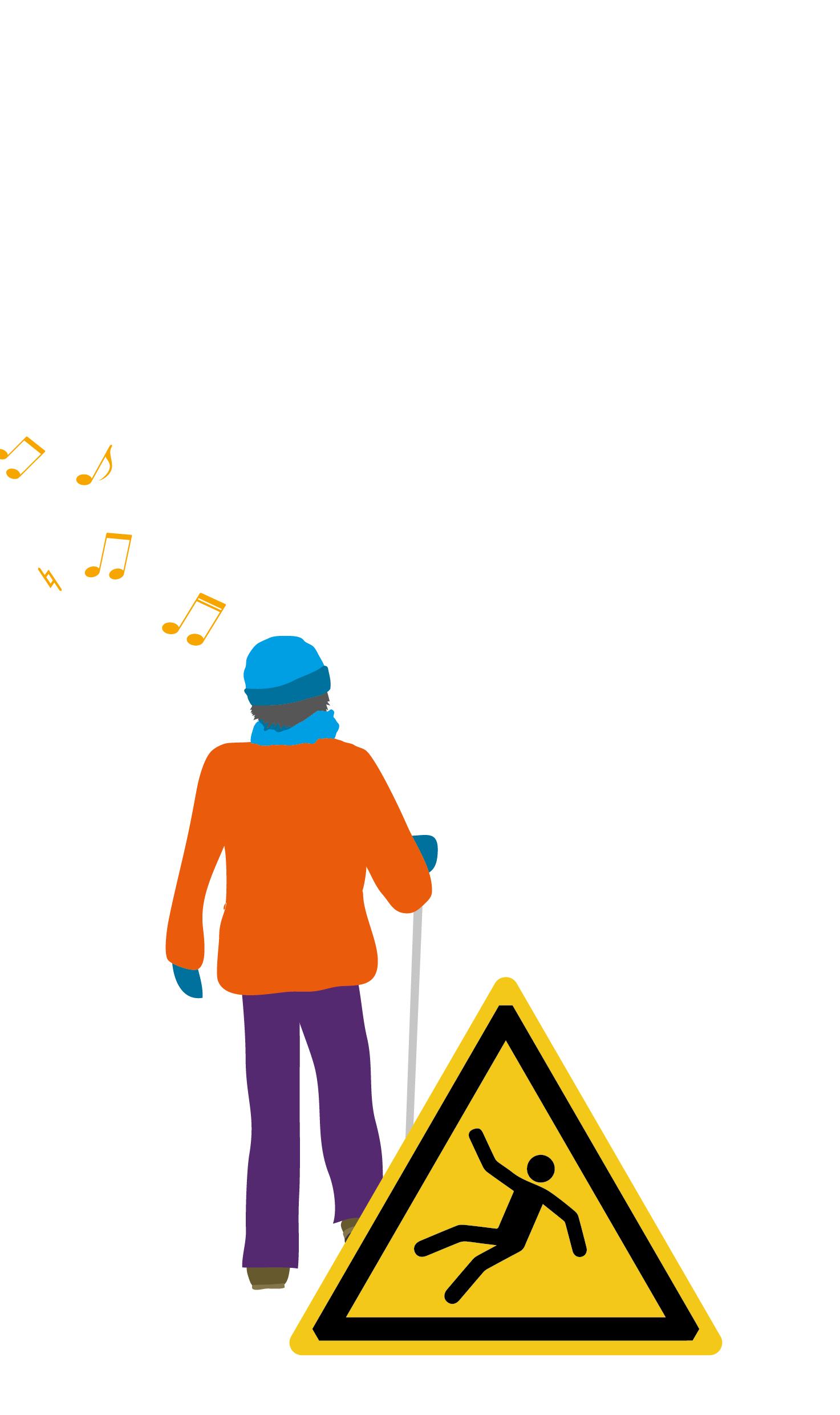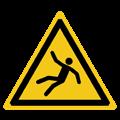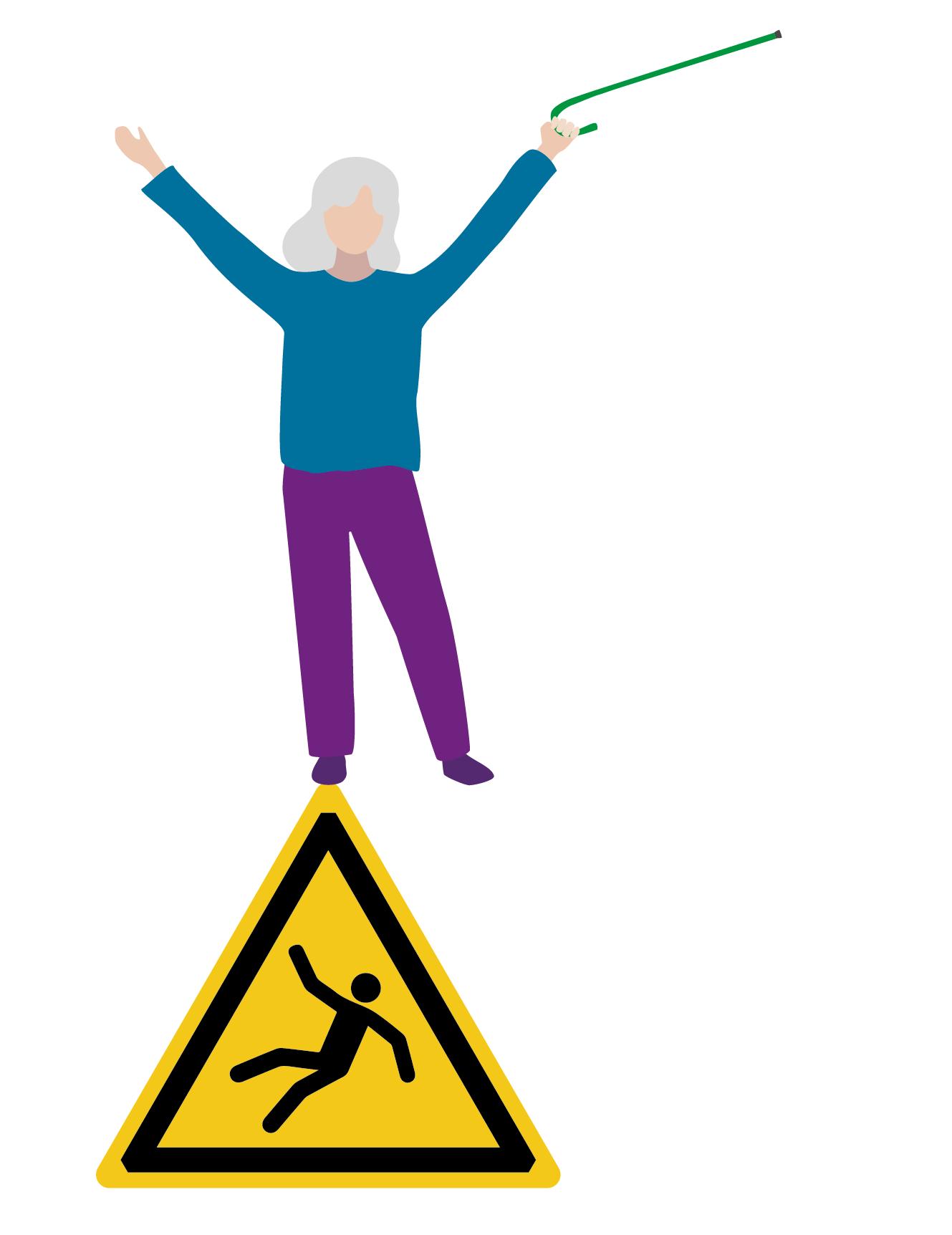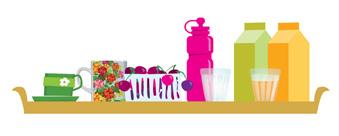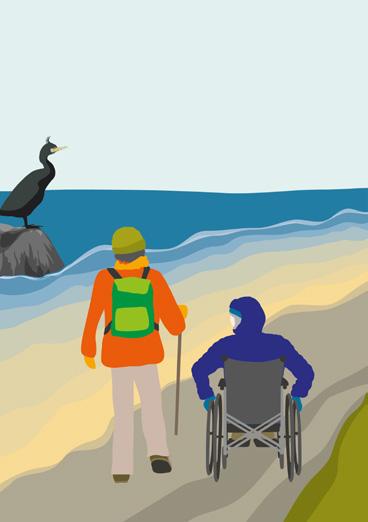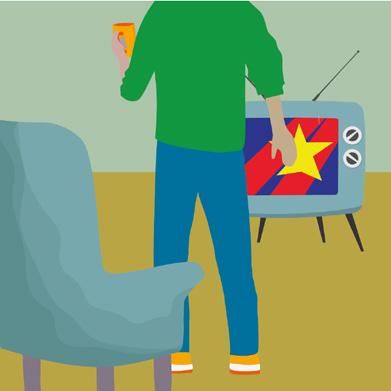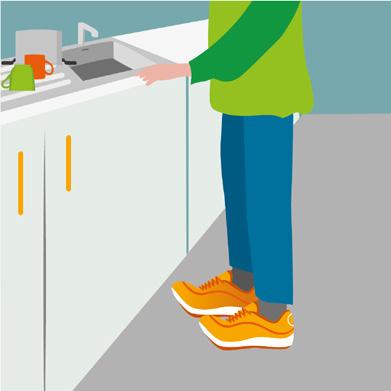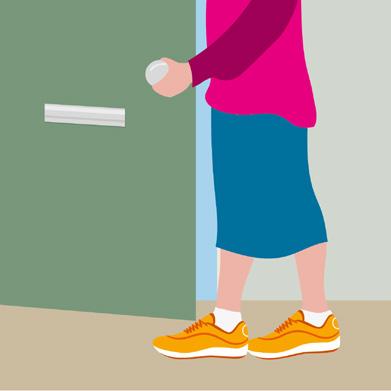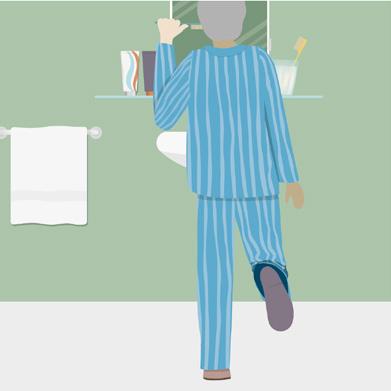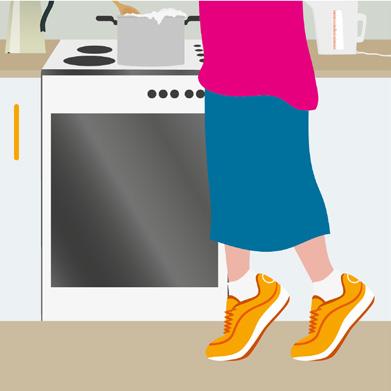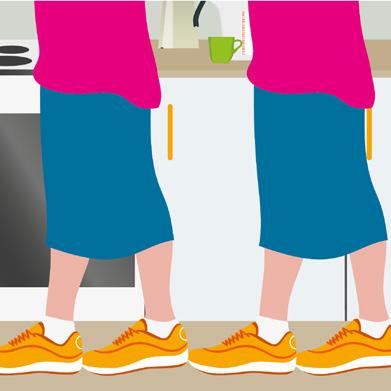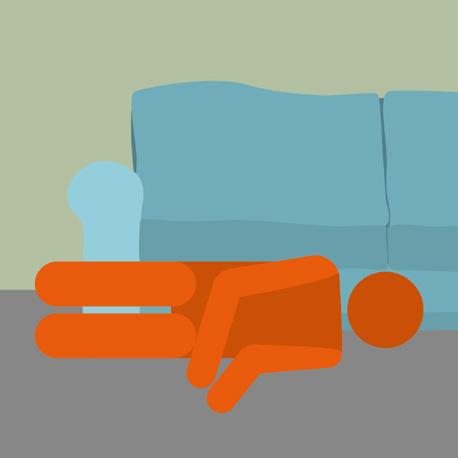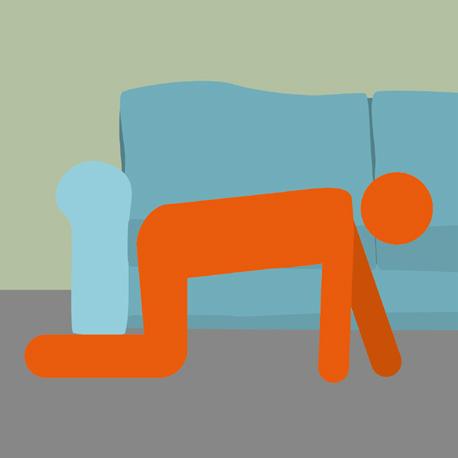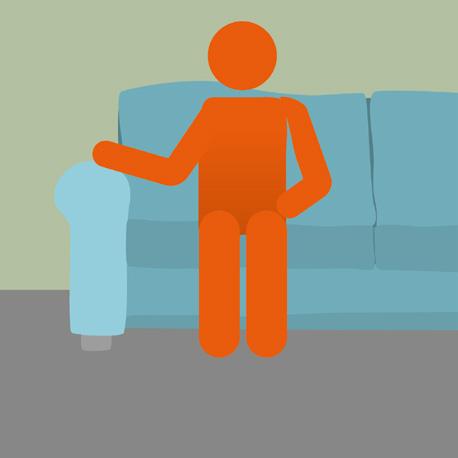How we can help
We know that growing older doesn’t come with a manual. Later life can bring changes and opportunities to your life and you may need to know about rights, organisations and services which are unfamiliar to you.
That’s why we provide free information and advice to help you on a range of topics including benefits and entitlements, social care, legal issues such as Power of Attorney, housing and much more. All of our guides are available to download for free from our website, or you can contact our helpline team to have copies posted to you for free.
The Age Scotland helpline is a free, confidential phone service for older people, their carers and families in Scotland looking for information and advice.
Later life can bring times when you just need someone to talk to. Our friendship line is part of our wider helpline and older people can call us for a chat. We’re here to listen, provide friendship and offer support.
Worried about slips, trips and stumbles?
Contents
Introduction p1
Getting help and support p2
Staying safe at home p4
Staying safe and active out and about p6
Exercises for strength and balance p7
Looking after your feet p9
Have a plan in case you slip or stumble p10
Who can help? p12
Worried about slips, trips and stumbles?
Introduction
If you have slipped, tripped, stumbled, or had a close call, you may be worried that you could hurt yourself if this happens again. You could be anxious about whether you can safely go about your normal day. Future falls are often preventable; there is plenty you can do to keep yourself safe, and a lot of support available from health services to keep you on your feet.
The keys to staying as well as you can in later life are all about looking after all of yourself:
• eating well, with the right balance of foods in your diet – see our Eat Well guide for advice
• staying hydrated – our Hydration guide explains what to do and why this matters
• being physically active – find out more in our guide Keeping active in later life
• staying socially connected and using your mind – call the Age Scotland helpline on 0800 12 44 222 to find out what’s on in your community.
Hydration matters
Keeping active in later life
Eat Well A guide for older people in Scotland
Worried about slips, trips and stumbles?
Staying safe at home
Some people stop doing things they could because they are scared of hurting themselves, but if you stop moving about and doing everyday activities you will lose the skills and strength you used to have. Not being active is called being sedentary and it can increase your risk of falling.
Depending on why you slipped or tripped, there are different things you can do to make yourself safer.
You could look at exercises to improve your strength and balance, or check out your home to see if small changes could help you feel more confident to move about and stay on your feet.
Some small risks around the home can be easily fixed to make your day safer. You may not notice the risks around your home as it is your environment and you have developed routines and accumulated possessions – maybe clutter – over many years. It may help to invite a friend over and ask them to look at your home with fresh eyes; you can return the visit and look for any risks in their home too.
Throughout your home, check that you have good lighting, safe lighting at night, and floors that will not cause you to slip or trip. If you have furniture that gets in the way when you need to move about, see if it can be moved, or swapped for something smaller.
Worried about slips, trips and stumbles?
For individual rooms check:
• stairs – if you have steps between rooms or a flight of stairs, you need to take extra care and make sure that banisters are secure; you could be distracted if you are carrying something or if your mind is on something else
• kitchen – have the things you use most where you can reach them without leaning, stretching or climbing
• bathroom – think about the best way to reduce slipping on the floor, getting in and out of the bath or shower or in the bath
• living room – if you have clutter, it can trip you, or you may stumble trying to move round it, especially if you need to move quickly
• bedroom – piles of clothes, trailing bedding or a valance can easily wrap themselves around your feet especially if you are tired or when it is dark.
You may find it frustrating that you cannot do some of the things you used to do. Your local Care and Repair service can often help, if it is harder to do the DIY that you used to be able to manage yourself. They can help with putting up curtain rails, changing lightbulbs and fire alarm batteries and simple repairs.
For details of your local Care and Repair service, see the Care and Repair Scotland website www.careandrepairscotland.co.uk, or contact the Age Scotland helpline on 0800 12 44 222.
Worried about slips, trips and stumbles?
Staying safe and active out and about
If you have slipped or stumbled, you might be worried about what could happen outdoors. It is really important to get out of your home every day if you can for fresh air, vitamin D from sunlight, exercise and a change of scene. But if it is icy, or you are not feeling too great, it is fine to miss a day and stay safe and cosy at home. If you don’t have family nearby who can help, call the Age Scotland helpline on 0800 12 44 222 to find out who could provide support locally if you could not get out for a while.
Being outdoors can help you to reduce your risk of slips and trips:
• walking helps improve stamina and if you got off that bus one stop early or used the stairs in the shopping centre this will all help improve your fitness
• climbing hills challenges your body and helps muscle strength and balance
• carrying shopping helps your stamina and can strengthen your muscles and bones.
On days when you can go outdoors there are lots of things you can do, regardless of how fit you are. You might want to:
• walk by yourself to clear your head
• find a green space or walk near water to treat your senses to outdoor sights, sounds and smells
• stroll to a café with a friend
• try something more organised like a Paths for All health walk. Call 01786 641851 or visit www.pathsforall.org.uk.
Being active outdoors can reduce your risk of a future fall, by helping your body maintain its fitness and ability to react to a trip or slip.
Worried about slips, trips and stumbles?
Exercises for strength and balance
If you struggle to exercise every day, try fitting in exercise over a week. There are six simple exercises that can help with strength and balance. They do not take much time, and you can usually fit them in whilst you are doing something else such as waiting for the kettle to boil, or in advert breaks. Pairing exercises with things you normally do makes it easier to remember them and stick to good habits. The routines below are just suggestions; you can fit the exercises into your day however you like.
For all the exercises, if you are worried that you might fall, make sure you are near a solid surface that could support you. Do not worry if you wobble, wobbling is good for your balance.
Sit to stand in the ads
While TV adverts are on, or in between programmes, go and sit on a hard chair. Sit tall near the front of the chair, feet slightly back and hip-width apart. Lean forwards slightly and stand up powerfully using your legs (use your hands to support you if you need to). Then slowly sit down again. Repeat up to 10 times.
Washing up toe raise
After the dishes are washed stay by the sink. Stand tall with your feet hip-width apart, holding on to the sink edge lightly. Slowly lift your toes (slow count of 3), keeping your knees soft, then slowly lower your toes again (slow count of 5). Try to keep your bottom in and back straight. Repeat 5-10 times.
Worried about slips, trips and stumbles?
At the door heel toe stand
Before you head out of your front door, stand tall with your feet hip-width apart, holding on to the door handle or frame for support if you need to. Place one foot directly in front of the other so that your feet form a straight line. Balance for 10 seconds. Take your feet back to hip-width apart then put the other foot in front and balance for another 10 seconds.
One leg tooth brushing
Stand close to the sink as you brush your teeth. Balance on one leg, keeping your knees soft, and stand tall, only hold on to the sink if you need to. Hold the position for 10 seconds. Now do it on the other leg.
Waiting for dinner heel raise
While dinner is cooking, stand tall with your feet hip-width apart. Slowly lift your heels (slow count of 3), keeping your weight over your big toes and avoiding locking your knees. Lower your heels (slow count of 5). Repeat up to 10 times.
Kettle boiling heel toe walk
They say the watched kettle never boils, but it might seem quicker if you exercise while you wait. Stand tall. Place one foot directly in front of the other so your feet form a straight line and walk up to 10 steps forwards alongside your kitchen table or surface. Look ahead and aim for a steady walking action. Take your feet back to hip-width apart, then repeat the steps in the other direction.
Worried about slips, trips and stumbles?
Looking after your feet
Your feet help you get around, get out and about, dance, and flex to stand on tiptoe so you can reach up high. At their best they are flexible, sense whether you have a good grip on a slippery surface, and can feel the warm sand between your toes on a summer beach. Later in life, it is really important to take good care of your feet, you should:
• check your feet every day - get to know them well
• wear comfortable, supportive shoes that have a secure fastening
• wear well-fitting socks or tights made from natural fibres
• wash your feet every day, then dry them carefully, particularly between the toes
• apply moisturising cream daily, on the back of your heels but not between your toes, maybe before you go to bed
• keep your toenails in good shape weekly by filing them with an emery board or using nail clippers; cut them straight across, not too short and not down at the corners.
But avoid:
• wearing the same shoes every day
• wearing the same socks or tights for more than a day
• wearing slippers all day
• walking around in bare feet or just socks.
You should take extra care if your feet are numb, sore or tingly, especially if you have a condition like arthritis or diabetes. Your GP practice, pharmacist or NHS Podiatry (foot care) service can give you advice. If you are happy to look for information online you can check out foot care information on the NHS Inform website www.nhsinform.scot or call them on 0800 22 44 88.
The Royal College of Podiatrists website has footcare advice too: https://rcpod.org.uk/common-foot-problems.
Worried about slips, trips and stumbles?
Have a plan in case you slip or stumble
If despite your best efforts you slip or trip, it is a good idea to have a plan for how to get up again.
The plans below will work for most people, but if you have problems with your knees or grip, you might need to adapt them to suit you. If it would help, think about how this would work in different rooms and practice when you are with someone to make sure your plan will work if you ever need it.
If you can go online, there are some videos showing how you can get up from the floor, indoors or outdoors on the NHS Inform website www.nhsinform.scot/healthy-living/preventing-falls/ dealing-with-a-fall/what-to-do-if-you-fall.
If you can get up:
• roll on to your side
• push on to your hands
• push up on to your hands and knees
• crawl to something solid like the sofa, side of the bath, or even an upturned waste paper bin to lean on if you need to
• place your strongest leg forward
• stand up
• turn slowly
• sit down
• rest and tell someone you have fallen.
Worried about slips, trips and stumbles?
If you cannot get up, rest and wait:
• if you can, call for help; dial 999 if you can reach your phone, use your alarm if you have one, or shout for a neighbour to help you
• breathe slowly, in through the nose for a count of 4 and out through the mouth for a count of 6, for a few minutes. This can help you clear your mind at any time
• keep warm - try to reach for a duvet or coat to keep yourself warm until help arrives
• if you are on a cold surface, move onto a carpet or rug if you can
• move gently if you can so you keep warm and don’t become stiff or sore; try to rock gently from side to side but keep any injured areas still.
Worried about slips, trips and stumbles?
